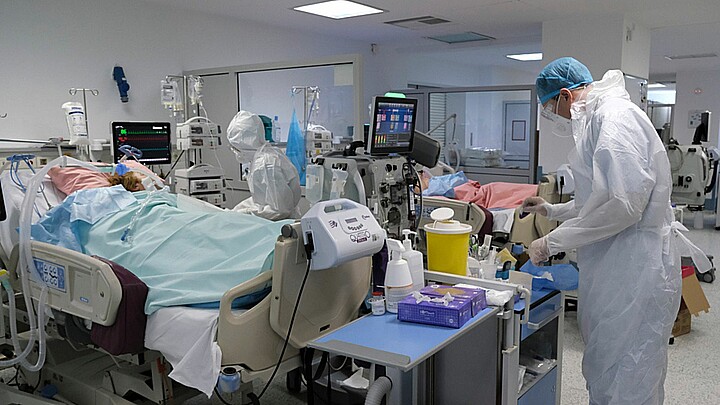Health
Scientists discover Deltacron variant, but say risk is low
March 15, 2022 4:07pm
Updated: March 15, 2022 4:08pm
Last week, French researchers reported that three people in southern France were infected with a COVID-19 variant that appeared to be a mixture of the Delta AY.4 and Omicron BA.1 viruses, which they subsequently dubbed “Deltamicron.”
Although not much is yet known about the new variant, it has since been reported in several countries including the U.S., Israel and Brazil, Newsweek reported.
According to a report from MedRxiv, the variant mixture, known as a recombinant, is made of “the near full-length spike gene of an Omicron BA.1 variant in a Delta AY.4 lineage backbone” and is similar to 15 other hybrid variant cases reported to the GISAID virus database as of Feb. 27 of this year.
In a subsequent press release from the World Health Organization, the organization’s COVID-19 technical lead Maria Van Kerkhove said the variant had also been detected in France, the Netherlands and Denmark, but added that there were “very low levels of this detection.”
"We have not seen any change in the epidemiology with this recombinant, we haven't seen any change in severity, but there are many studies that are underway," Van Kerkhove said. "Unfortunately we do expect to see recombinants because this is what viruses do; they change over time."
Researchers, however, do not appear to believe that the new variant should be cause for concern and some have even stated that the strain has existed for some time without detection.
Krista Queen, director of viral genomics and surveillance at Louisiana State University Health Shreveport, believes it’s too soon to make any guesses about what the new variant might look and said it would be "better to wait for experimentation and real-world observations gathered."
Similarly, Jeremy Kamil, associate professor of microbiology and immunology at Louisiana State University Health Shreveport, said the number of cases might be too small for concern.
"The epidemiological characteristics are not worrying. We are talking about small numbers of cases,” he said.









